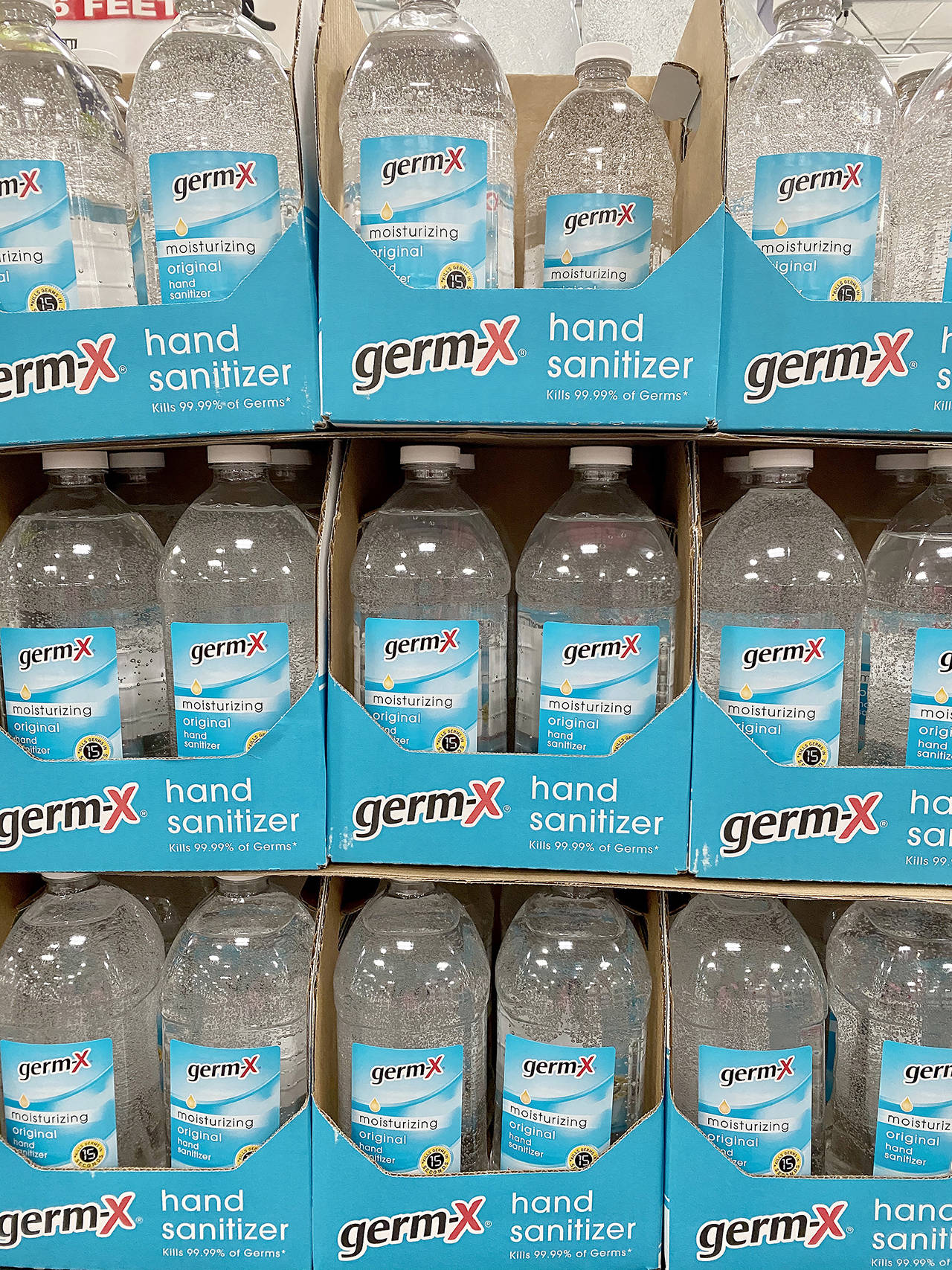EVERETT — The jugs of hand sanitizer are back on store shelves.
Dispensers are on sinks, desks and key chains.
Warning: There can be too much of a good thing.
Excessive COVID cleansing can be dangerous to your health.
The Washington Poison Center reports increased toxic exposures from household cleaning and disinfectant agents during the COVID-19 pandemic due to transmission precautions.
The center said hand sanitizer exposures in children up to 12 years old increased 52% from a four-month period a year ago.
Kids might be licking their hands after hand sanitizer is applied or taking a drink from the bottle, said Meghan King, a public health educator with the center.
Exposures from misuse of household cleaning products, bleach and rubbing alcohol increased 53%.
Some folks are using the chemicals on their faces, on groceries and produce or on their face masks, King said.
When people soak their masks in cleaning products then put them on, they’re inhaling those chemical fumes.
King also warned against mixing different cleaning chemicals together because it can produce toxic gas.
About 87% of patients exposed to hand sanitizer, household cleaning products, bleach and rubbing alcohol were managed at home with advice from helpline staff.
Total suspected suicide cases (from all substances) increased 10%.
In April, some companies and agencies issued warnings not to inject or ingest products after President Donald Trump suggested the possibility of using disinfectants to treat people infected with the coronavirus.
“Please don’t eat Tide pods or inject yourself with any kind of disinfectant,” the state’s Emergency Management Division tweeted. “Just don’t make a bad situation worse.”
Please don't eat tide pods or inject yourself with any kind of disinfectant.
If you do need help with #COVID19 issues, we have lots of resources at https://t.co/C4x8jjWL0x
Just don't make a bad situation worse.
— WA Emergency Management 😷 (@waEMD) April 23, 2020
The manufacturer of Lysol said in media statement “that under no circumstance should our disinfectant products be administered into the human body (through injection, ingestion or any other route).”
Washington’s Poison Helpline is staffed around the clock by nurses and pharmacists. It offers free help with emergencies and treatment advice on poisonings, drug overdoses and toxic exposures.
“We appreciate the confidence that the public and healthcare providers place in us by calling when potentially toxic exposures and overdoses occur,” Dr. Erica Liebelt, the poison center’s executive and medical director, said in a news release. “By calling us, we are able to compile data, analyze trends, and provide relevant, timely education to communities and public health partners on emerging risks and prevention strategies.”
The Poison Helpline number is 800-222-1222. For more information, go to www.wapc.org.
Andrea Brown: abrown@heraldnet.com; 425-339-3443. Twitter @reporterbrown.
Tips to prevent poisoning
• Wear gloves when cleaning. Open windows and doors for ventilation.
• Do not mix cleaning products.
• Do not use cleaning products on food.
• Store cleaners, household chemicals, sanitizer and other potentially harmful substances in their original containers. Keep out of reach of children.
• Supervise children when using hand sanitizer to prevent ingestion and eye exposures.
• Wash masks with soap and water. Never soak or spray masks with bleach, disinfectants or other cleaning chemicals.
Source: Washington Poison Center
Talk to us
> Give us your news tips.
> Send us a letter to the editor.
> More Herald contact information.

























